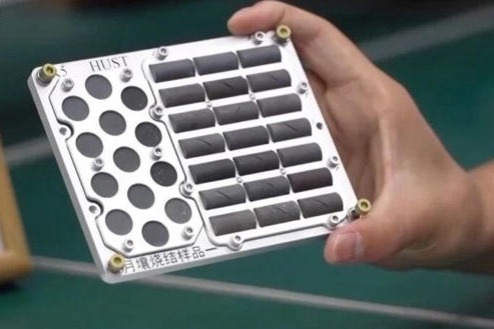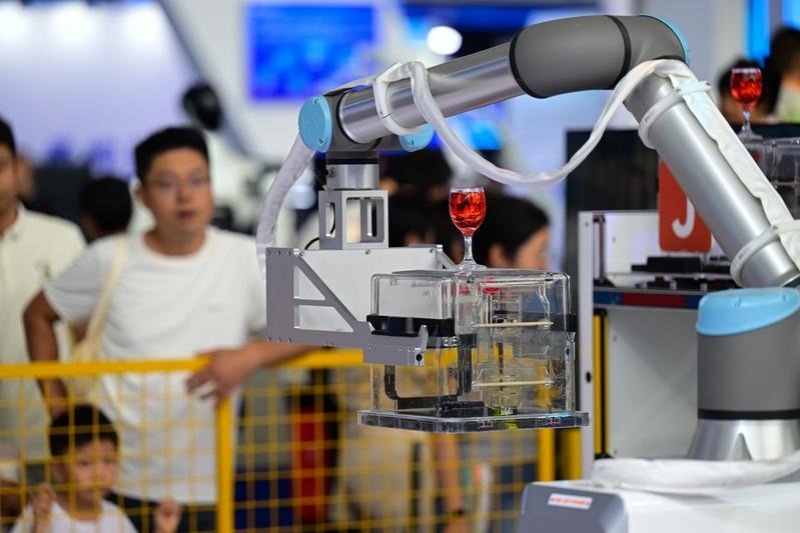Tariffs not a magic wand for MAGA

The US president seems obsessed with tariffs, as though wielding a magic wand, a single wave of which is all it takes to realize his dream to "make America great again".
In his latest act of wizardry, the US leader announced his intention to impose a tariff hike on all imported cars, pharmaceuticals and semiconductors, in a bid to reshore jobs and factories from overseas.
During a news conference at his Mar-a-Lago estate in Florida on Tuesday, the US president said that he is planning to enact auto tariffs in the "neighborhood of 25 percent" to encourage companies to shift production from overseas, adding that while a full announcement would come on April 2, the import duties would likely start at 25 percent. He said he would charge the same amount for pharmaceuticals and semiconductors and gradually increase the tariffs over time.
"It will be 25 percent and higher, and it will go very substantially higher over the course of a year," Trump said. "But we want to give them time to come in because, as you know, when they come into the United States, and they have their plant or factory here, there is no tariff, so we want to give them a little bit of a chance."
That Trump didn't specify whether countries such as Mexico and Canada, which have a free trade agreement with the US, will be exempt from the new tariffs has put all major car exporters to the US on pins and needles. Mexico, Japan, Canada, the Republic of Korea and Germany will bear the brunt of the new duties on cars as major car exporters to the US.
The problem is when it comes to choosing sites for new plants tariffs are just only one factor that the companies take into consideration, they also have to take into account labor costs, distance from suppliers, market demand and logistics, etc. That explains why Mexico, thanks to it being a member of the North American Free Trade Agreement and its low-cost labor, about 10-20 percent of that in the US, has become the largest springboard for Japanese and German automakers to enter the US market, which together accounted for about 15 percent of the cars sold in the US last year.
So if a tariff hike is not high enough to offset, say, Mexico's advantages in other respects, the carmakers will choose to continue to make cars in the country. But if the tariff hike is high enough to drive them to relocate their plants to the US they will still have to accommodate much higher costs in labor and logistics. In either case, it will be the US consumers that will pay for the additional tariffs.
Experts warn that auto parts usually cross borders between the US and Canada and Mexico about seven or eight times before final assembly, and if the additional tariffs are levied on each border crossing, the final costs will escalate dramatically. It is estimated that if a 25 percent tariff is imposed on cars and parts imported from Mexico and Canada, the cost of buying a new car for US consumers will increase by about $5,790 on average. This is expected to increase the average cost of a new car in the US to more than $54,500 per vehicle, nearly 12 percent higher than in 2024.
Considering that the European Union, the ROK and Japanese trade officials are all scheduled to meet with their counterparts in the Trump administration for talks, the revealing of the US move at this juncture is undoubtedly intended to give the US more bargaining chips in the forthcoming negotiations.
However, the Trump administration should give due consideration to the effect the higher tariffs will have at home. The US consumer price index grew 3 percent year-on-year in January, and inflation expectations have strengthened. It is also likely that the fiscal deficit will continue to expand on the basis of the tariffs. Investors will be concerned about the sustainability of US finances under this situation, and a lack of market confidence will lead to a sell-off of US bonds, further pushing up yields.
Trump's solution to the inherent conflict in his policy is to ask the Federal Reserve to cut interest rates. However, if the Federal Reserve loses its independence, it may further weaken the dollar's position as the world's reserve currency, leading investors to sell US assets.
As such, weaponizing tariffs is by no means a quick fix for the US' problems and will likely only cause more problems in the future.
Today's Top News
- Japan's PM seen as playing to right wing
- Mainland increases entry points for Taiwan compatriots
- China notifies Japan of import ban on aquatic products
- Envoy: Japan not qualified to bid for UN seat
- Deforestation is climate action's blind spot
- Japan unqualified for UN Security Council: Chinese envoy






























